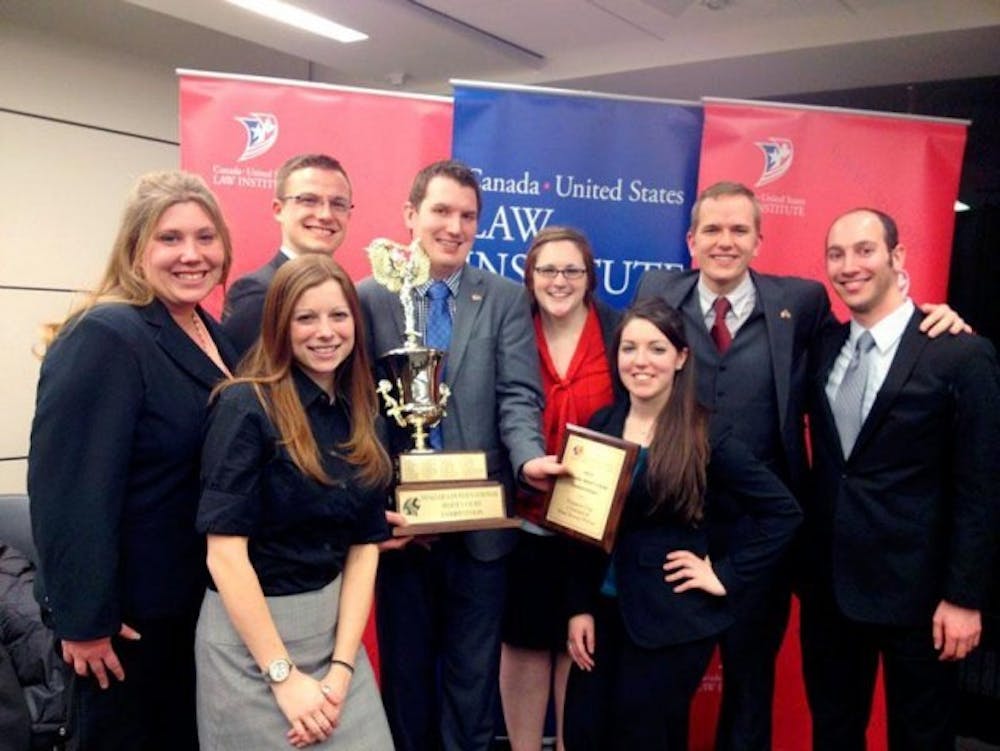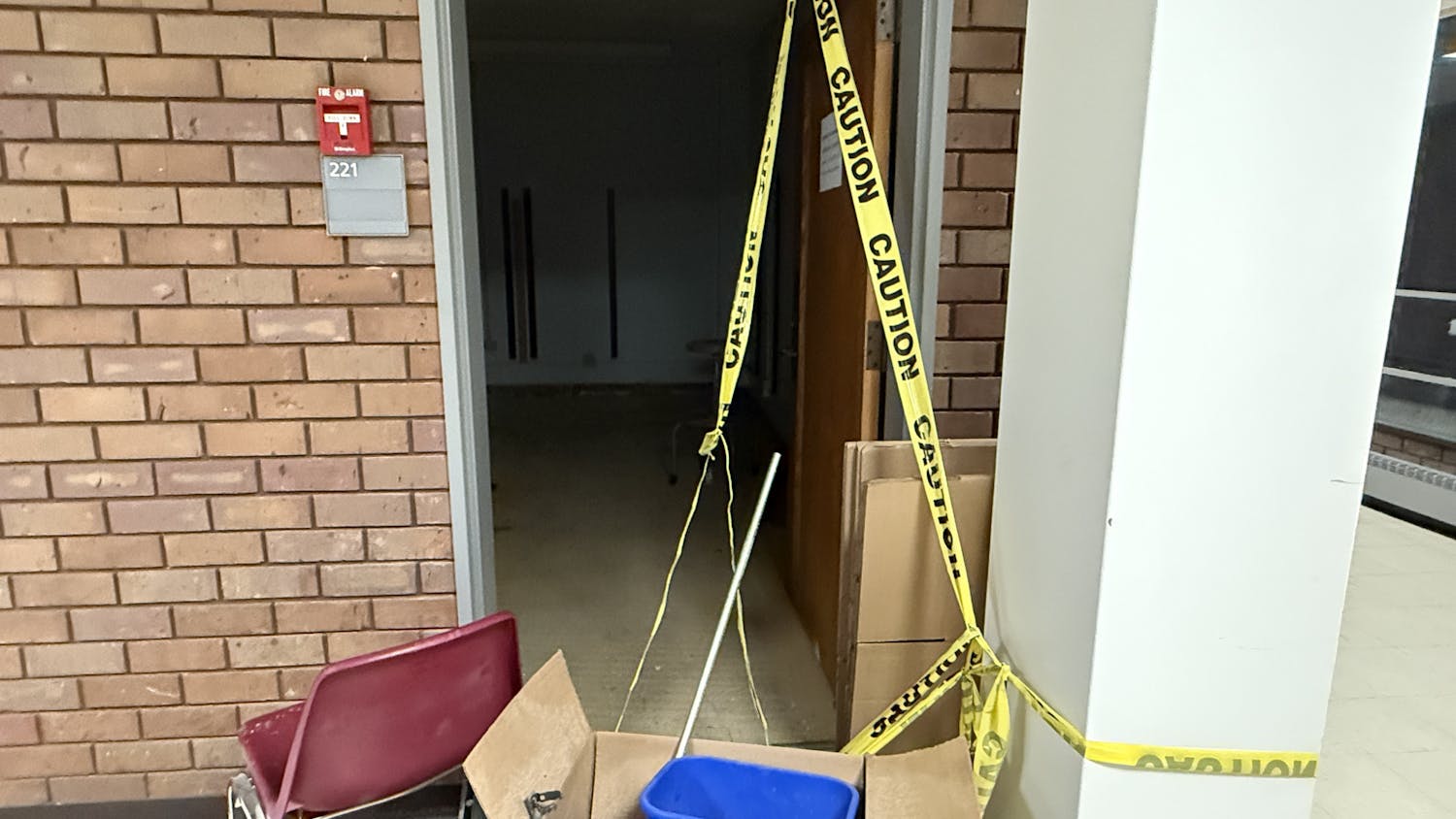For the first time in over 40 years, the SUNY Buffalo Law School won first place the Niagara International Moot Court Competition.
Since 1968, the competition has brought American and Canadian schools together to compete in mock court trials and practice addressing issues in front of the International Court of Justice. The competition's location alternates each year between Washington, D.C., and Toronto, where the event took place this year.
The debates focus on international relations between the United States and Canada. This year focused specifically on the confiscation of resources owned by someone associated with terrorist activities and granting refugee status to someone associated with a terrorist organization like Al Qaeda.
Former law students Melissa Overbeck and Angelyn Delgato coached the team, along with student coaches and third-year law students Erin Ross and Phil Modrzynski. The competitors were third-year law students Adam Barth and Matt Hoffman and second-year law students Andrew Dean, Jennifer Bryant and Carey Beyer.
Hoffman and Beyer acted as applicants and argued for Canada, while Dean and Bryant took the role of respondents and argued for the United States. Barth served as the alternate for both teams, assisting in finding information about laws relating to the case.
After a successful tryout last April, the team began preparing for the competition in October, when it received the debate topics. The squad researched the cases and wrote drafts for the memorial, a 30-page written brief to prepare for the competition, according to Dean.
The team handed in the memorial draft in January and spent the next month practicing its oral arguments for the cases. The competitors spent three to four hours per day, three days per week practicing their arguments.
"It's a very intense process [with] lots of long hours and going over drafts," Ross said. "We go through their 20-minute oral argument over and over again, trying to flesh out what the issues are and how they respond to judges' questions."
Bryant believes the competition helps students understand there are multiple aspects to the law, like how to argue and present a case in front of various courts.
"Depending on what court you are in front of, depending on the type of case, how you argue is significantly different based on the circumstances," Bryant said. "I always assumed that when you think of an attorney arguing, you think of them arguing in front of a trial or in front of the Supreme Court, so being in front of the [International Court of Justice] gave me a different perspective on how you would be as a lawyer."
Hoffman said his biggest gain from the competition was the development of his speaking skills in front of a courtroom.
"I always spoke very quickly and was nervous and was very note-heavy before I started practicing a lot," he said. "As a result of practice and the competition, I became a lot more comfortable in the court atmosphere, wasn't note-heavy and maintained the right kind of voice."
Hoffman intends to get involved in criminal law after graduation, possibly as a district attorney. Bryant is interested in criminal law from the perspective of a defense attorney and working on cases involving veterans.
The team encountered several challenges during the competition. In the semifinal round, Hoffman had to go with a third argument for his case when one of the judges was unsatisfied with his previous claims. Hoffman's success in overcoming this obstacle demonstrated the ability of thinking on one's feet when involved in a debate for a long time.
Delgato believes her team was at a disadvantage because each competitor had never competed at that level before. Going against Case Western Reserve University in the finals was concerning because it was the best team UB had seen in the entire competition, Delgato said.
"It was just a very well-argued round," Delgato said. "They were very good with the way they responded to questions. They gave us a run for our money there."
Each student brought his or her own strengths to the team, but Delgato believes the team's victory came from Dean's professionalism, Barth's understanding of the law, Bryant's easygoing attitude, Hoffman's ability to handle pressure and Beyer's ability to memorize information.
"Carey didn't use any notes at any point and I always found that to be very impressive," Delgato said.
Winning the gold cup for first place was not the only prize UB received in the competition. In the preliminary rounds, Bryant received the award for the third-best advocate and Dean won the award for the second-best respondent.
Dean said he will return to compete in next year's competition and is interested in seeing a focus on different areas relevant to the United States and Canada like trade issues and credit for same-sex parents.
Tryouts for the 2014 team will be held at the end of April and the competition will be held in Washington, D.C.
Email: news@ubspectrum.com





